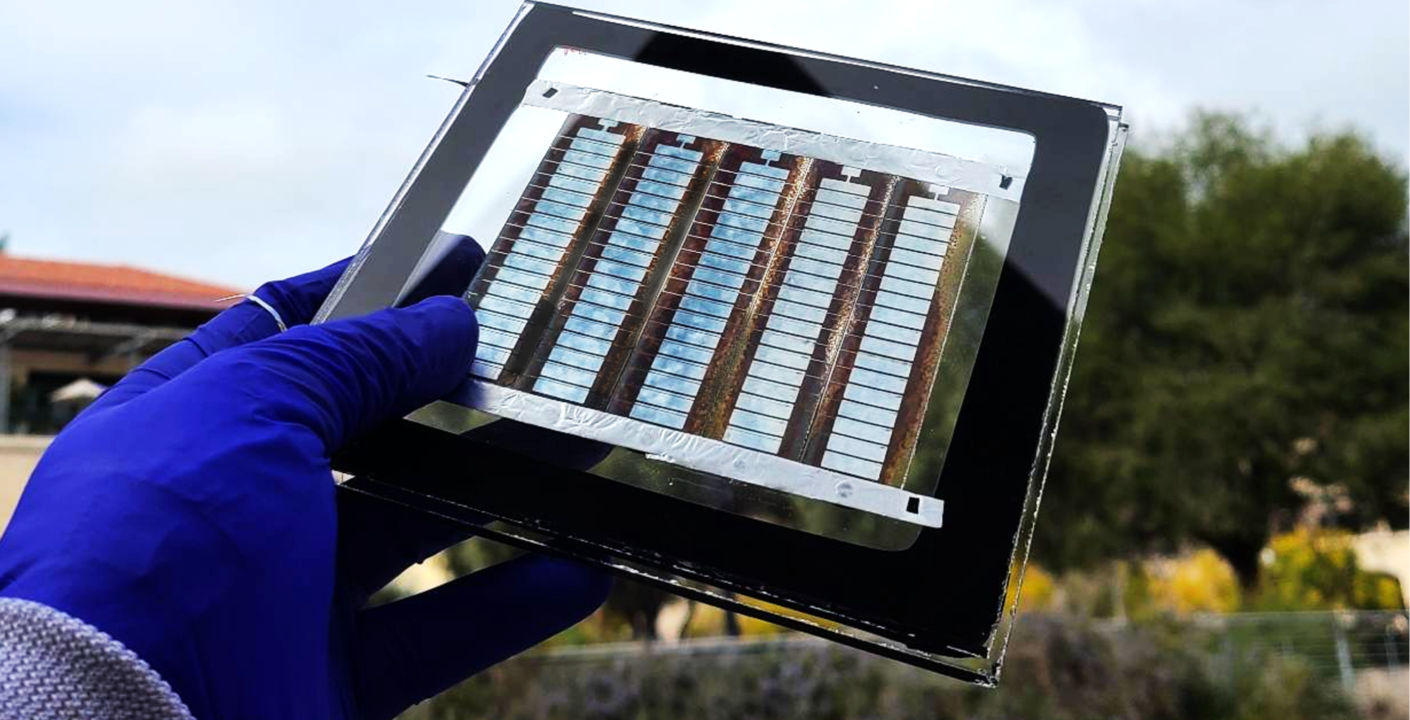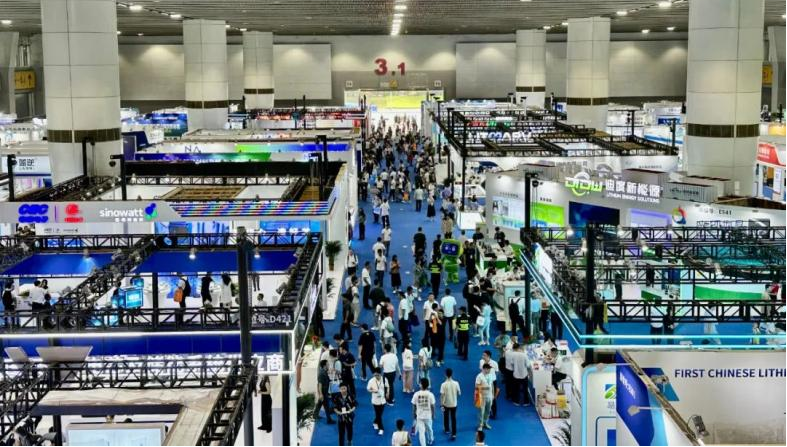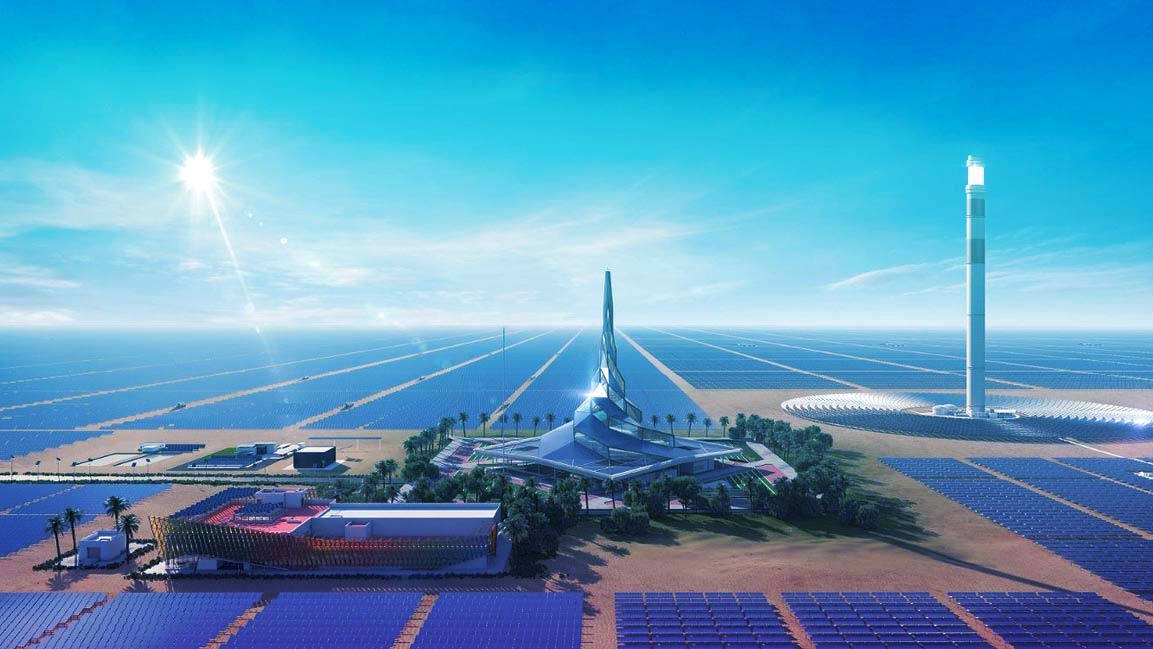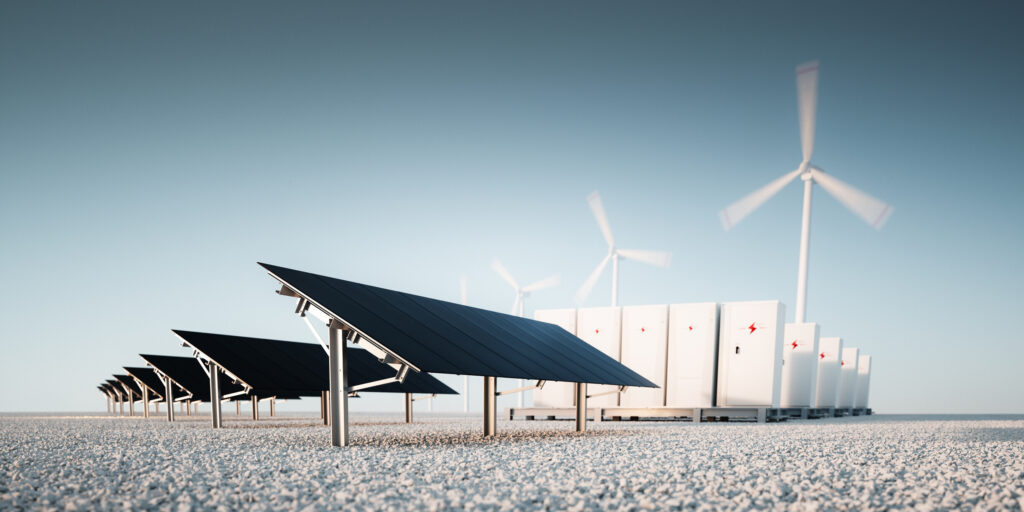Saudi Arabia is making significant strides in the Middle East’s renewable energy sector by investing heavily in clean energy projects. Under its “Vision 2030” initiative, the kingdom aims to diversify its energy sources, reduce dependence on oil, and increase the share of renewables in its energy mix. Central to this transformation is the strategic involvement of China, whose photovoltaic (PV) industry is playing a critical role in shaping Saudi Arabia’s clean energy future.
Massive Investment in Clean Energy
To achieve its ambitious goals, Saudi Arabia plans to invest 1 trillion Saudi Riyals (approximately $266 billion) in clean energy projects by 2030. This substantial investment underscores the kingdom’s commitment to becoming a leader in renewable energy within the Middle East.
Focus on Solar Energy
Given its abundant sunlight, Saudi Arabia is focusing on solar energy as a primary renewable source. Recent developments include the signing of power purchase agreements for three new solar photovoltaic projects with a total capacity of 5.5 gigawatts (GW). These projects, located in the northern and western regions of the country, represent a significant step toward the kingdom’s renewable energy targets.
China’s Role in Saudi Arabia’s Renewable Energy Transformation
Saudi Arabia’s ambitious pursuit of clean energy has created immense opportunities for international collaboration, with China emerging as a key player in this transformation. Recognized as a global leader in solar technology and manufacturing, China’s PV industry is driving the kingdom’s renewable energy agenda forward.
Major Projects and Investments
China’s involvement in Saudi Arabia’s renewable energy projects is highlighted by several high-profile collaborations:
- Construction of Solar Power Plants
In 2024, China Energy Engineering Corporation signed a landmark $972 million deal to construct a 2 GW solar power plant in Saudi Arabia. This project, located in the Al-Hail region, is poised to become one of the largest solar installations in the Middle East, significantly boosting Saudi Arabia’s renewable energy capacity. - Solar Manufacturing Facilities
Chinese companies like JinkoSolar and TCL Zhonghuan Renewable Energy Technology have announced substantial investments in manufacturing facilities within Saudi Arabia. These facilities aim to localize solar panel production, reduce import dependency, and create jobs, fostering technological exchange and skill development in the region. - Technology Transfer and Expertise
Beyond financial investments, Chinese firms are bringing advanced solar technologies, such as high-efficiency bifacial panels and energy storage systems, to Saudi Arabia. These technologies are instrumental in maximizing energy output, especially in the kingdom’s desert conditions, where high temperatures and dust can impact solar performance.
Why China Is a Strategic Partner
China’s pivotal role in Saudi Arabia’s energy transition stems from several key factors:
- Global Leader in PV Technology
China dominates the global photovoltaic industry, accounting for over 70% of the world’s solar panel production. Its companies offer cutting-edge technologies at competitive prices, making them ideal partners for large-scale projects. - Proven Track Record
Chinese companies have demonstrated their ability to execute mega-projects worldwide, often ahead of schedule and within budget. This reliability has earned them a strong reputation in Saudi Arabia and other Gulf Cooperation Council (GCC) nations. - Shared Goals for Carbon Neutrality
Both nations are committed to achieving ambitious carbon reduction goals. Saudi Arabia plans to achieve net-zero emissions by 2060, while China aims to reach carbon neutrality by 2060. Their shared vision creates a strong foundation for long-term collaboration.
Impact on Saudi Arabia’s Energy Landscape
The collaboration with China’s PV industry is accelerating Saudi Arabia’s renewable energy adoption and supporting its economic diversification goals:
- Energy Independence
By harnessing solar energy, Saudi Arabia can reduce its reliance on oil for domestic energy consumption, freeing up more crude for export and enhancing its fiscal stability. - Job Creation
Solar manufacturing and installation projects spearheaded by Chinese companies are generating employment opportunities for Saudi citizens, contributing to the kingdom’s “Saudization” goals. - Regional Leadership
With China’s support, Saudi Arabia is positioning itself as a leader in renewable energy within the Middle East, setting a benchmark for other nations in the region to follow.
Future Prospects
As Saudi Arabia continues to ramp up its renewable energy initiatives, China’s involvement is expected to deepen. Potential areas for future collaboration include:
- Energy Storage Solutions
Developing advanced battery storage systems to ensure a stable energy supply, even during non-sunny periods. - Smart Grids
Building smart grid infrastructure to optimize energy distribution and integrate renewable sources efficiently. - Green Hydrogen Production
Leveraging solar energy to produce green hydrogen, a critical component of the global energy transition.
Conclusion
Saudi Arabia’s trillion-dollar push for clean energy, supported by China’s photovoltaic industry, is transforming the kingdom’s energy landscape. This partnership not only strengthens the renewable energy sector in the Middle East but also underscores the importance of global collaboration in achieving a sustainable and carbon-neutral future. Together, Saudi Arabia and China are setting a powerful example of how nations can unite to address climate change while fostering economic growth.
Author Profile
Latest entries
 Knowledge2025-01-08Perovskite Solar Cells: A Revolutionary Technology for the Future of Solar Energy
Knowledge2025-01-08Perovskite Solar Cells: A Revolutionary Technology for the Future of Solar Energy Knowledge2025-01-08The Moore’s Law of Solar Power: How Economies of Scale Drive Solar Energy Costs Down
Knowledge2025-01-08The Moore’s Law of Solar Power: How Economies of Scale Drive Solar Energy Costs Down Event2025-01-062025 World Battery & Energy Storage Industry Expo (WBE) – Join the Global Energy Revolution
Event2025-01-062025 World Battery & Energy Storage Industry Expo (WBE) – Join the Global Energy Revolution News2025-01-05Saudi Arabia’s Trillion Push for Clean Energy: China’s Role in the Transformation
News2025-01-05Saudi Arabia’s Trillion Push for Clean Energy: China’s Role in the Transformation




















